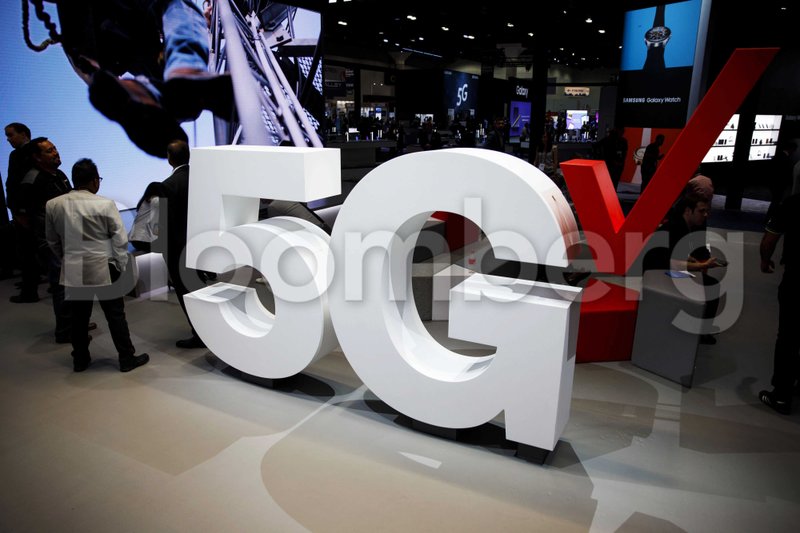Mobile carriers such as AT&T and Verizon are in a race to build new data networks that can deliver ultra-fast downloads and support a fresh generation of smart, Internet-connected devices.
But a battle is brewing over how much the companies should pay for access to public utility poles and other rights-of-way, as federal regulators get ready to vote on the issue Wednesday.
The proposal by the Federal Communications Commission would establish new limits on the use fees that cities and towns can charge wireless carriers as the companies set up their new, 5G data networks. And it would require local officials to make decisions more quickly on carriers' permit applications.
As the successor to 4G LTE, 5G is expected to offer download speeds that rival or even exceed what many consumers receive on their home Internet connections. And, its proponents say, it could help open the door to a range of other technologies that today's data networks can't support, such as self-driving cars.
Installing the necessary equipment on public poles requires getting clearance from cities and towns. And unlike traditional wireless cells, 5G cells will have a smaller footprint. FCC and industry officials say the antennas to be installed will be so-called small cells, the size of a pizza box or a backpack. But some of the gear is the size of a double-door refrigerator, and new poles can be four stories tall under the proposed rules.
The small cells need to be spaced every few blocks because signals used for 5G fade quickly. It's expected that 300,000 will be installed in the next three to four years, according to an estimate developed for CTIA, a wireless trade group. The small cells merit eased procedures compared with tall, intrusive cell towers, according to the FCC.
Industry backs the new rules, which closely follow recommendations it put forward.
High local fees could add costs and slow the spread of those next-generation networks, according to FCC Chairman Ajit Pai.
"By updating our rules to make it easier to install wireless infrastructure, the Commission is taking another critical step to promote U.S. leadership in 5G wireless services," Pai wrote in a blog post earlier this month. The FCC proposal would prevent cities and towns from charging more than $270 a year per cell site.
Carriers currently pay, on average, upward of $500 per pole every year, according to an agency study.
A number of cities and towns, particularly in rural areas, have said they support the proposal because reducing the carriers' costs in big cities could mean more money for building advanced networks in smaller ones. On Monday, Republican FCC Commissioner Brendan Carr released statements from more than a dozen state and local leaders endorsing the proposal.
"I believe that by reducing the high regulatory costs in the urban areas would leave more dollars to development in the rural areas," Duane Ankney, a Republican state senator for Montana, said in the release.
But the proposed requirements for local officials are drawing opposition from critics who say the FCC is hindering the autonomy of cities and towns and preventing them from performing basic oversight tasks. Restricting the fees could also undercut other local programs, they say.
"We are concerned that the proposed language would significantly impede local government's ability to serve as trustees of public property, safety, and welfare," wrote J. Brent Fedors, county administrator for Gloucester County, Va., in a letter last week to the FCC.
The nonpartisan U.S. Conference of Mayors said it it "strongly opposes" the FCC's plan as creating "subsidized access to local public property."
The move would also tighten to 60 days, from 90, the time limit for localities to review new small antennas on existing structures, and places a 90-day limit for considering new installations, down from 150 days, according to a summary produced by the agency. The 90- and 150-day limits still apply to large towers.
Cities including Boston, Dallas and Los Angeles earlier told the FCC not to establish deadlines or price controls. "Local governments cannot simply give away public property for private purposes," the cities said in a July filing.
Some localities have expressed support. In Florida, Pensacola Mayor Ashton Hayward III cited in a June 8 letter "common-sense standards insofar as it relates to fees."
The FCC says the rule will boost broadband deployment, in part by spreading carriers' limited deployment funds to more places.
Others say there's no evidence that eased fees will produce greater investment in less-populated areas that offer fewer customers, and hence less revenue.
Jessica Rosenworcel, the FCC's sole Democrat, said she hasn't decided whether to vote for the change. "We need to find ways to streamline and harmonize deployment rules across the country," Rosenworcel said in an interview. "But we're going to have to figure out how to make states and localities our partners.'
Information for this article was contributed by Brian Fung of The Washington Post and by Todd Shields of Bloomberg News.
Business on 09/25/2018
